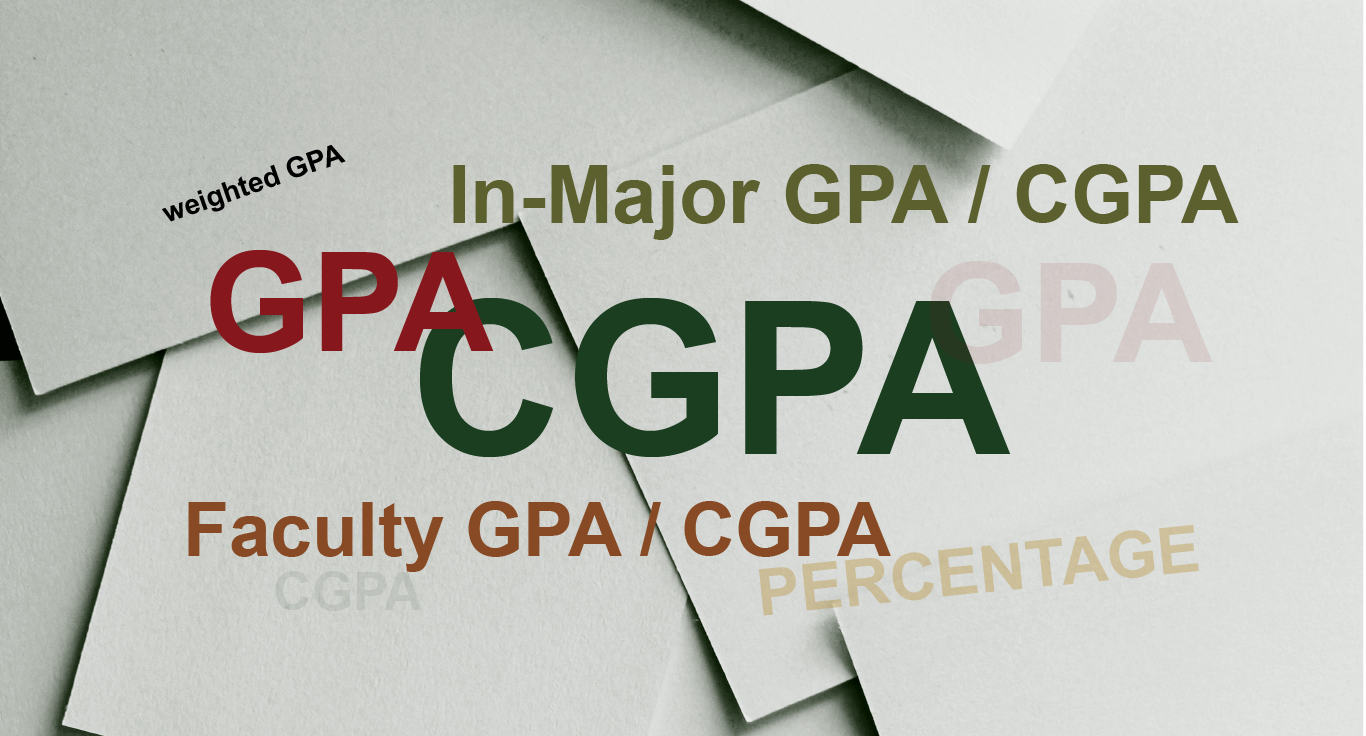Study Guide
Is a 2.5 GPA Good? Colleges That Accept a 2.5 GPA
A 2.5 GPA in English can be seen as a reflection of a mixed academic journey, encompassing both challenges and accomplishments. While some may consider it a modest grade point average, it does not necessarily define one’s true potential or passion for the subject.
Let us delve into the elaboration of this scenario, exploring the factors that might contribute to such a GPA and the possibilities that lie ahead.
One encounters various subjects within English studies, including literature, writing, grammar, and linguistics. The complexity and depth of these disciplines often require diligent effort and analytical thinking.
For individuals who have achieved a 2.5 GPA, it can be an opportunity to reflect on their academic journey and identify areas for growth and improvement.
Understanding GPA Ratings
GPA, which stands for Grade Point Average, is a commonly used rating system to assess academic performance in educational institutions. It serves as a quantitative measure to evaluate a student’s overall success in their coursework.
In the GPA system, grades are typically assigned numerical values, ranging from 0 to 4, depending on the grading scale used by the educational institution. These numerical values represent the quality of a student’s performance in each course. The most common grading scale is as follows:
A: 4.0
B: 3.0
C: 2.0
D: 1.0
F: 0.0
When calculating the GPA, the numerical values assigned to each grade are averaged together to determine the overall performance. The process involves:
- Multiplying the grade point value by the number of credits for each course.
- Summing them up.
- Dividing by the total number of credits attempted.
GPA ratings are often categorized into ranges, providing a general indication of a student’s performance. While these ranges may vary across educational institutions, a commonly used scale is as follows:
4.0 and above: Excellent
3.0 to 3.9: Good to Above Average
2.0 to 2.9: Average to Below Average
1.0 to 1.9: Poor
Below 1.0: Failing
However, it is important to note that GPA ratings are a snapshot of a student’s academic performance within a specific period. They summarize their grades and do not reflect other aspects of their educational journey, such as extracurricular activities, research projects, or personal growth.
Read this article to know everything you need to learn about 3.3 GPA: Is a 3.3 GPA Good? Colleges That Accept a 3.3 GPA
Factors That Influence The Perception Of A “Good” GPA
The perception of a “good” GPA can vary depending on several factors, including cultural norms, educational institutions, and individual goals and aspirations. While there is no universally agreed-upon definition of what constitutes a “good” GPA, certain factors can influence how it is perceived.
#1. Grading Scale and Institution Standards:
Different educational institutions may have varying grading scales and standards. Some institutions may have a more lenient grading system, resulting in higher average GPAs, while others may adopt a more rigorous approach.
Therefore, what is considered a “good” GPA can differ between institutions.
#2. Academic Field:
The perception of a “good” GPA can also vary based on the academic field or major. Certain fields, such as competitive science or engineering programs, may have higher expectations and stricter grading standards, resulting in a higher threshold for a “good” GPA.
In contrast, other fields may place less emphasis on GPA and prioritize practical experience or specific skill sets.
#3. Career or Graduate School Aspirations:
The perception of a “good” GPA is often influenced by an individual’s career or graduate school aspirations. Some industries or graduate programs may prioritize GPA as a primary factor in selection.
In such cases, a higher GPA may be perceived as more desirable and increase the likelihood of success.
#4. Personal Goals and Standards:
Personal goals and standards play a significant role in determining a “good” GPA. Individuals may set their expectations based on their drive for excellence or the desire to meet specific academic or career objectives.
What one person considers a “good” GPA may differ from another person’s perspective based on their personal goals.
#5. Cultural Factors and Peer Comparisons:
Cultural factors can also influence the perception of a “good” GPA. In some cultures, greater emphasis may be placed on academic achievements and a higher expectation for a “good” GPA.
Additionally, individuals may compare their GPA to their peers’ performance, leading to a relative perception of what is considered a “good” GPA within their social circle.
Check out this article to learn about colleges that accept 3.9 GPA: Is a 3.9 GPA Good? Colleges That Accept a 3.9 GPA
Is a 2.5 GPA Good?
The perception of whether a 2.5 GPA is considered “good” can vary depending on the context and individual circumstances. It is important to note that what may be considered a good GPA in one situation may differ in another.
In some educational institutions or programs, a 2.5 GPA may be considered below average or not meeting the expected standard. Institutions with more competitive environments or rigorous grading criteria may set higher expectations for a “good” GPA.
This could be particularly true in fields strongly emphasizing academic performance, such as certain STEM disciplines or highly selective programs.
However, it is essential to remember that GPA is not the sole measure of an individual’s abilities, skills, or potential. A 2.5 GPA does not define a person’s worth or ability to succeed in other aspects of life.
Other factors, such as practical experience, personal achievements, extracurricular activities, and individual growth, can significantly contribute to a person’s overall competence and potential.
Furthermore, a 2.5 GPA should not discourage individuals from pursuing their goals or aspirations. Focusing on personal growth, learning, and continuous improvement is important rather than solely fixating on a specific GPA number.
Taking proactive steps to address areas of weakness, seeking guidance from professors or mentors, and engaging in extracurricular activities related to one’s field of interest can contribute to personal and academic development.
Is a 2.5 GPA Good for College Admissions?
A 2.5 GPA is generally considered below average and may present some challenges for college admissions. Most selective colleges and universities often have higher GPA expectations for admission. However, it is important to remember that GPA is just one factor among many that colleges consider when evaluating applications.
While a 2.5 GPA may not meet the typical requirements of highly competitive institutions, there are still several factors that can positively influence your college admissions prospects:
#1. Holistic Review:
Many colleges employ a holistic review process, considering various aspects of an applicant’s profile. This includes standardized test scores, extracurricular activities, essays, letters of recommendation, and personal achievements. Strong performance in these areas can compensate for a lower GPA.
#2. Contextual Factors:
Admissions officers also consider the context in which your GPA was achieved. They consider the rigor of your high school curriculum, any challenging circumstances you may have faced, and how you have demonstrated growth and improvement over time. If your GPA reflects improvement or an upward grade trend, it can be seen as a positive indicator.
#3. Special Talents or Achievements:
Exceptional talents, achievements, or unique experiences can make your application stand out, even with a lower GPA.
If you have excelled in a particular area, such as sports, music, art, or community service, highlight these accomplishments to showcase your strengths and dedication beyond academic performance.
#4. Transfer or Alternative Options:
If your GPA is below the requirements of your desired colleges, you might consider alternative pathways. Some students attend community college or pursue transfer programs to demonstrate their academic abilities before applying to four-year institutions.
These pathways allow you to improve your academic record and strengthen your application.
Additionally, seeking guidance from college counselors, admissions officers, or mentors who can provide personalized advice based on your specific circumstances and goals can be beneficial.
Is a 2.5 GPA Good for Grad School?
A 2.5 GPA is generally considered below the typical standards for admission to most graduate programs. Graduate schools often have higher expectations when it comes to academic performance, and they often seek candidates with strong academic records.
However, it is important to note that GPA is not the sole determining factor for admission to graduate school.
While a 2.5 GPA may pose challenges, there are several factors that can positively influence your prospects for graduate school admission:
#1. Relevant Experience and Achievements:
Graduate programs often consider factors beyond GPA, such as relevant work experience, research experience, internships, publications, or other notable achievements. Strong practical experience in your field of interest can help compensate for a lower GPA and demonstrate your capabilities.
#2. Standardized Test Scores:
Some graduate programs place greater emphasis on standardized test scores, such as the GRE, GMAT, or other specialized exams. Achieving high scores on these tests can help offset a lower GPA and provide evidence of your academic abilities.
#3. Letters of Recommendation:
Strong letters of recommendation from professors, employers, or professionals who can speak to your skills, abilities, and potential can significantly impact your application. These recommendations can provide a more comprehensive view of your capabilities beyond your GPA.
#4. Statement of Purpose and Personal Statement:
Your statement of purpose and personal statement allows you to articulate your passion for the field, your motivations, and your future goals. By highlighting your commitment, research interests, and relevant experiences, you can make a compelling case for admission despite a lower GPA.
#5. Admissions Interviews:
Some graduate programs conduct interviews as part of the application process. These interviews provide an opportunity to showcase your knowledge, enthusiasm, and interpersonal skills, which can contribute to a positive impression even if your GPA is not as strong.
Is a 2.5 GPA Good for Middle School?
In the context of middle school, a 2.5 GPA can be considered average or satisfactory. Middle school GPA calculations may vary depending on the specific grading system used by the school. However, a 2.5 GPA typically suggests a combination of grades in the B and C range.
It is important to note that middle school GPA may not hold the same level of significance as it does in high school or college admissions. Middle school is often a transitional period where students are still adjusting to new academic expectations and learning environments.
While maintaining a higher GPA can demonstrate strong academic performance and discipline, it is equally important for middle school students to focus on their overall growth and development.
This includes cultivating good study habits, participating in extracurricular activities, developing social skills, and exploring various subjects and interests.
It is also worth noting that the specific grading scale and GPA expectations may vary between schools and districts. It is essential to consider the grading policies and expectations set by your school when evaluating the significance of a 2.5 GPA.
Is a 2.5 GPA Good for High School?
In the context of high school, a 2.5 GPA is generally considered below average. Most colleges and universities have higher expectations when it comes to GPA for admission. However, it’s important to remember that GPA is not the only factor that colleges consider during the admissions process.
While a 2.5 GPA may present some challenges, there are several factors that can positively influence your prospects for college admission:
#1. The Rigor of Coursework:
Colleges take into account the rigor of the courses you have taken in high school. If you have challenged yourself with advanced or honors-level courses, it can demonstrate your ability to handle more demanding academic material and may offset a lower GPA to some extent.
#2. Standardized Test Scores:
Strong performance on standardized tests such as the SAT or ACT can help enhance your college application and provide evidence of your academic abilities. Some colleges place more weight on standardized test scores, especially if your GPA does not meet their typical expectations.
#3. Extracurricular Activities and Leadership Roles:
Active participation in extracurricular activities, leadership positions, community service, or involvement in clubs and organizations can demonstrate your commitment, personal growth, and ability to manage multiple responsibilities. Highlighting these experiences can help compensate for a lower GPA.
#4. Letters of Recommendation:
Strong letters of recommendation from teachers, counselors, or mentors who can speak to your character, work ethic, and potential can greatly influence the admissions decision. These letters provide insight into your abilities and accomplishments beyond your GPA.
#5. Personal Essays:
The personal essay portion of the college application allows you to showcase your unique experiences, motivations, and goals. A well-written essay can provide a more comprehensive view of your strengths, passions, and aspirations, allowing admissions officers to see beyond your GPA.
What Letter Grade is a 2.5 GPA?
In most grading systems, a 2.5 GPA corresponds to a letter grade of either a C+ or a C, depending on the specific scale used by the educational institution.
Grading scales can vary, so it is important to refer to the specific scale implemented by your school or college to determine the corresponding letter grade for a 2.5 GPA.
Converting 2.5 GPA to Percentage: A Comprehensive Guide
Converting a GPA to a percentage can be a subjective process as different educational institutions and systems may have varying conversion scales. However, I can provide you with a general guideline for converting a 2.5 GPA to a percentage.
It’s important to note that this guideline is an approximation and may not be universally applicable. It is always best to consult your educational institution or refer to their specific conversion scale for the most accurate conversion.
#1. Understand the Grading Scale:
Familiarize yourself with the grading scale used by your educational institution. Most schools utilize a 4.0 scale, where an A is typically worth 4.0, B is 3.0, C is 2.0, and so on.
#2. Determine the GPA Range:
Calculate the range of GPAs based on the grading scale. For example, if an A is worth 4.0 and a B is worth 3.0, you can determine the difference between each grade. In this case, the range would be 1.0 (4.0 – 3.0 = 1.0).
#3. Find the Percentage Range:
Divide the GPA range by the percentage range. In a standard conversion, the percentage range is typically 100 (since a percentage is out of 100). So, if the GPA range is 1.0, divide it by 100 to determine the equivalent percentage value for each 0.01 increase in GPA.
#4. Calculate the Percentage for a 2.5 GPA:
Multiply the GPA (2.5) by the determined percentage range per 0.01 increase in GPA. This will give you an approximate percentage value. For example, if the percentage range is 1.0, multiplying 2.5 by 1.0 would give you an approximate percentage of 2.5 * 1.0 = 25%.
Top 7 Colleges That Accept a 2.5 GPA
Here are seven colleges that are known to have a more lenient approach toward GPA requirements:
#1. California State University, Dominguez Hills:
This public university in California considers applicants with a 2.5 GPA or higher for admission. They prioritize a comprehensive review of an applicant’s academic record, personal achievements, and potential for success.
#2. University of Texas at El Paso:
UTEP offers opportunities for students with a 2.5 GPA or higher. They have holistic admissions criteria that take into account various factors, including community involvement, leadership, and personal qualities.
#3. Arkansas State University:
Arkansas State University considers applicants with a 2.5 GPA or higher. They assess applications holistically, considering factors such as standardized test scores, extracurricular activities, and personal achievements.
#4. Colorado State University-Pueblo:
This public university in Colorado evaluates applicants based on a variety of factors, including GPA, test scores, and personal achievements. They consider applicants with a 2.5 GPA or higher.
#5. Johnson & Wales University:
Johnson & Wales University has multiple campuses across the United States and offers programs in various fields. They have a more flexible admissions process and consider applicants with a 2.5 GPA or higher.
#6. Wilmington University:
Located in Delaware, Wilmington University considers applicants with a 2.5 GPA or higher. They focus on a holistic review of an applicant’s academic record, personal accomplishments, and potential for success.
#7. The University of Maryland University College:
UMUC is a public university offering online and on-site programs. They have a more inclusive admissions policy and consider applicants with a 2.5 GPA or higher.
Is a 2.5 GPA Good for Scholarships?
A 2.5 GPA may limit your eligibility for certain scholarships, as many scholarships have higher GPA requirements. However, it’s important to note that scholarships vary widely in their eligibility criteria and selection process.
While a 2.5 GPA may not make you eligible for highly competitive scholarships, there are still scholarship opportunities available for students with lower GPAs. Here are a few options to consider:
#1. Merit-Based Scholarships:
Some merit-based scholarships consider various factors beyond GPA, such as leadership skills, extracurricular involvement, community service, or special talents. These scholarships evaluate applicants holistically and may provide opportunities for individuals with a 2.5 GPA who excel in other areas.
#2. Need-Based Scholarships:
Certain scholarships focus primarily on financial needs rather than GPA. These scholarships assess an applicant’s financial circumstances and may provide assistance to students from lower-income backgrounds, regardless of their GPA.
#3. Community Scholarships:
Local organizations, community foundations, and businesses often offer scholarships to students in their area. These scholarships may have specific eligibility criteria and can range from academic achievement to community involvement. Researching and applying for scholarships within your community can increase your chances of finding opportunities that align with your profile.
#4. Major-Specific Scholarships:
Some scholarships are specifically designed for students pursuing certain fields of study or majors. These scholarships may consider factors such as career goals, passion for the subject, or relevant experiences. If you have a strong interest in a particular field, explore scholarships that cater to students in that area.
#5. Institutional Scholarships:
Many colleges and universities offer their own scholarships based on a range of criteria, including GPA. While some institutional scholarships may have higher GPA requirements, others may consider students with a 2.5 GPA or higher. Research the scholarship opportunities offered by the colleges or universities you are interested in attending.
Scholarships Based On Extracurricular Involvement And Achievements
There are numerous scholarships available that recognize and reward students for their extracurricular involvement and achievements. These scholarships focus on various areas, such as leadership, community service, athletics, arts, and specific talents.
Here are a few examples of scholarships based on extracurricular involvement and achievements:
#1. National Merit Scholarship:
The National Merit Scholarship Program awards scholarships to high school students who excel academically and demonstrate exceptional performance on the PSAT/NMSQT exam. Finalists are selected based on their academic achievements, extracurricular involvement, leadership, and potential for success in college.
#2. Coca-Cola Scholars Program:
This Coca-cola scholarship program recognizes high school seniors who have demonstrated exceptional leadership, community service, and academic achievement. Recipients are selected based on their commitment to making a positive impact in their communities.
#3. Eagle Scout Scholarships:
The Boy Scouts of America offers scholarships to Eagle Scouts who have demonstrated exceptional leadership, service, and commitment to their communities. Various organizations and universities provide scholarships exclusively for Eagle Scouts.
#4. Fine Arts Scholarships:
Many universities and organizations offer scholarships for students with exceptional talent in areas such as music, visual arts, theater, dance, and creative writing. These scholarships may require auditions, portfolio submissions, or performances to showcase the applicant’s skills and achievements.
#5. Sports Scholarships:
Colleges and universities provide athletic scholarships to outstanding student-athletes who have excelled in their respective sports. These scholarships consider an athlete’s performance, achievements, and potential to contribute to the college’s athletic program.
#6. Community Service Scholarships:
Several organizations and foundations offer scholarships to students who have made significant contributions to their communities through volunteer work and community service initiatives. These scholarships recognize the importance of civic engagement and reward students for their commitment to making a difference.
#7. Leadership Scholarships:
Many scholarships specifically recognize students who have demonstrated exceptional leadership skills and abilities. These scholarships may require essays, letters of recommendation, or interviews to evaluate an applicant’s leadership potential and achievements.
Need-based Scholarships And Financial Aid Options
These programs consider your financial circumstances and provide assistance to students who demonstrate financial need. Here are some need-based scholarships and financial aid options to explore:
#1. Federal Pell Grant:
The Pell Grant is a need-based grant program provided by the U.S. federal government. It is available to undergraduate students who have exceptional financial needs and have not earned a bachelor’s, graduate, or professional degree. The grant amount is determined based on factors such as your family’s income, cost of attendance, and enrollment status.
#2. Federal Supplemental Educational Opportunity Grant (FSEOG):
FSEOG is another federal grant program for undergraduate students with exceptional financial needs. These grants are administered by individual colleges and universities, and the amount awarded depends on your financial need and the availability of funds at your institution.
#3. State-Based Grants and Scholarships:
Many states offer need-based grants and scholarships to residents pursuing higher education. These programs vary by state and may consider factors such as financial need, academic achievement, and state residency. Research the financial aid options specific to your state of residence.
#4. Institutional Grants and Scholarships:
Colleges and universities often provide their own need-based grants and scholarships to eligible students. These awards can significantly contribute to reducing the cost of tuition and other educational expenses. Contact the financial aid office at the institutions you are considering to inquire about their institutional aid programs.
#5. Need-Based Scholarships:
Numerous private organizations, foundations, and businesses offer need-based scholarships to support students with financial needs. These scholarships may have specific eligibility criteria based on various factors such as academic achievement, community involvement, or career goals. Use scholarship search engines and online databases to find need-based scholarships that align with your profile.
#6. Work-Study Programs:
The Federal Work-Study Program provides part-time job opportunities to undergraduate and graduate students with financial need. These jobs are typically on-campus or with approved off-campus employers and allow you to earn money to help cover your educational expenses.
#7. Financial Aid from Colleges and Universities:
Many institutions have their own financial aid offices that can assess your financial need and offer various forms of assistance, including grants, scholarships, loans, and work-study opportunities.
Be sure to complete the Free Application for Federal Student Aid (FAFSA) and any additional financial aid forms required by your prospective colleges to be considered for institutional aid.
How Does a 2.5 GPA Affect My Career Prospects?
Here are some key points to consider:
#1. Experience and Skills:
Employers often prioritize practical experience and relevant skills when evaluating candidates. Focus on gaining hands-on experience through internships, part-time jobs, volunteer work, or extracurricular activities. Develop and highlight transferable skills such as communication, problem-solving, teamwork, and leadership, which are valued by employers regardless of GPA.
#2. Networking and Professional Relationships:
Building a strong professional network can significantly impact your career prospects. Attend industry events, join professional organizations, and connect with professionals in your field of interest. Networking can open doors to job opportunities, mentorship, and career guidance.
#3. Personal Projects and Portfolio:
Showcase your abilities through personal projects, portfolios, or independent research. Develop a portfolio that demonstrates your skills, creativity, and accomplishments. This tangible evidence of your work can be a valuable asset when applying for jobs, internships, or graduate programs.
#4. Tailor Your Job Search:
Research and target companies that prioritize skills and experience over GPA. Some industries and positions may place less emphasis on academic performance, focusing more on practical abilities and qualifications. Look for employers who value your strengths and align with your career goals.
#5. Graduate Studies:
If you are considering furthering your education, a 2.5 GPA may not necessarily disqualify you from graduate programs. Some graduate schools may have alternative admission criteria or consider other factors such as work experience, recommendation letters, or standardized test scores.
Research different programs and their admission requirements to find ones that align with your academic background.
#6. Continuous Learning and Improvement:
Regardless of your GPA, a commitment to continuous learning and improvement is crucial. Take advantage of professional development opportunities, online courses, workshops, and certifications to enhance your knowledge and skills. Demonstrating a growth mindset and a willingness to learn can be highly valued by employers.
FAQs
A 2.5 GPA is generally considered average or slightly below average. It may not meet the requirements for certain scholarships, competitive programs, or highly selective colleges and universities.
While a 2.5 GPA may present some challenges for college admissions, there are colleges and universities that have more flexible admission criteria and consider a broader range of applicants. Research and consider institutions that align with your academic profile and goals.
Graduate schools typically have higher GPA requirements for admission, and a 2.5 GPA may be below the average expected for most programs. However, some graduate schools may consider other factors such as work experience, recommendation letters, and test scores in addition to GPA. It’s essential to research specific programs and their admission requirements.
A 2.5 GPA in high school is generally considered average. While it may not be exceptional, it’s important to remember that high school GPAs are just one aspect of your overall profile. Focus on building a well-rounded academic record, participating in extracurricular activities, and showcasing your strengths in other areas.
Conclusion
A 2.5 GPA may not be considered high or exceptional, but it does not define your entire academic or professional journey. While it may present some challenges, there are various paths you can take to overcome them and achieve your goals.
Additionally, there are resources and opportunities available to improve your academic performance and enhance your prospects. Seek academic support, establish good study habits, and strive for continuous improvement.
Furthermore, explore scholarship opportunities that consider factors beyond GPA, such as extracurricular involvement, leadership, community service, or financial need. Research colleges, universities, and graduate programs that align with your goals and consider a holistic view of applicants.
Reference
- cappex.com: 2.5 GPA Colleges: Browse Schools That Accept a 2.5 GPA
- quora.com: Is a 2.5 GPA in college okay?
- mastersportal.com: What Is a GPA and Why Is It So Important?
Recommendation






